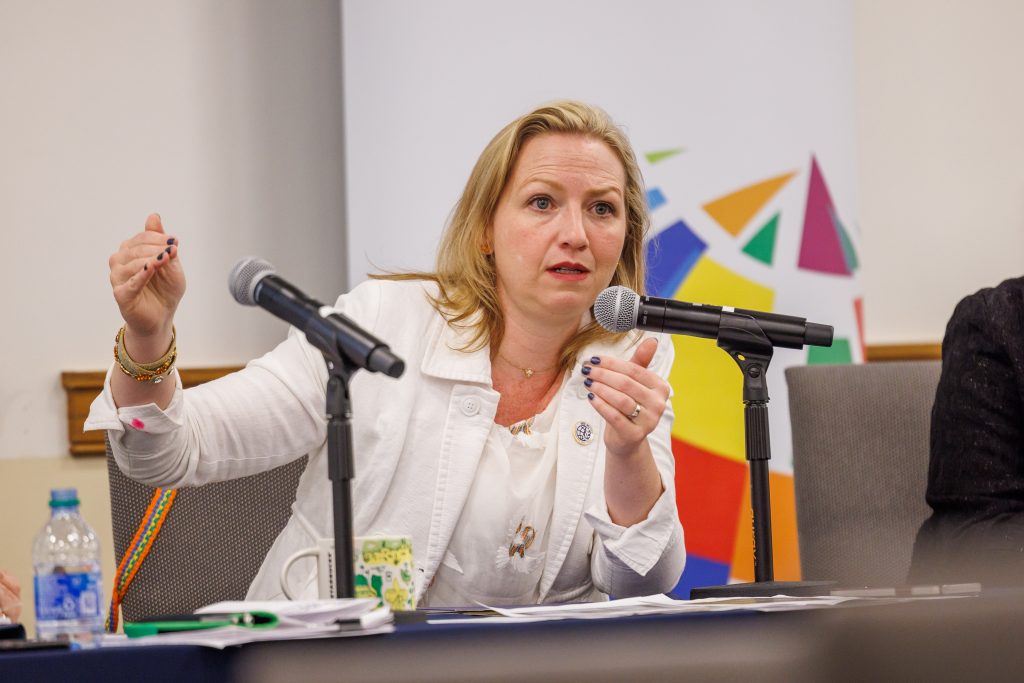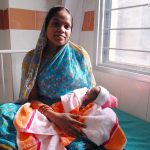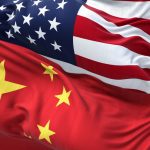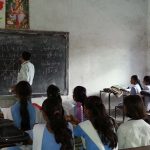How can faculty members and researchers become influential public intellectuals who share their work beyond the academy?
The Keough School of Global Affairs organized its first Policy and Practice Institute April 27-28 to empower faculty and staff to answer this question. Through a mix of presentations, discussions, and breakout sessions, attendees learned the ins and outs of networking, making research accessible, and finding ways to be timely and relevant to policymakers, media, and the general public.
Presenters included a mix of Notre Dame faculty and staff as well as experts from such organizations as Oxfam America, USAID, UNICEF, the American Foreign Policy Institute, and the Center on Budget and Policy Priorities.
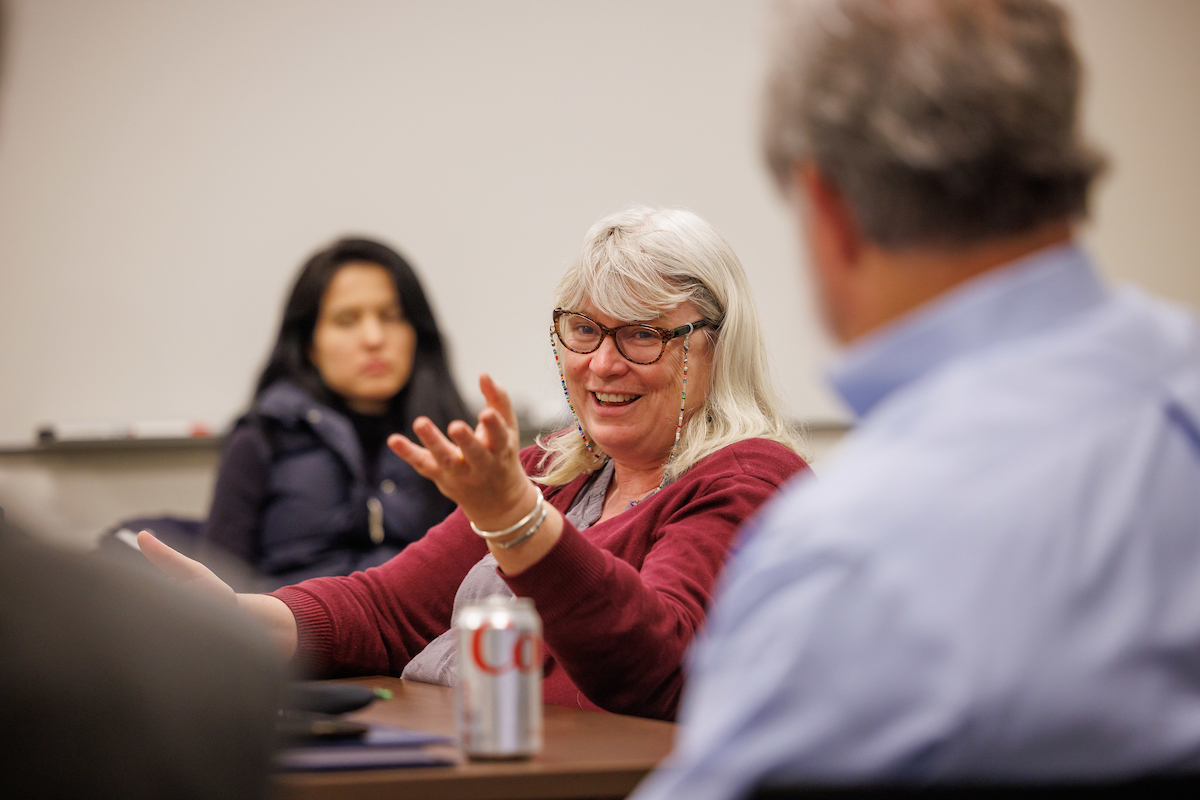
Caroline Hughes, Associate Dean for Policy and Practice and Rev. Theodore M. Hesburgh, C.S.C., Chair in Peace Studies, led the team that planned the institute. The gathering, she said, was possible thanks to the Keough School’s rich intellectual community and the extensive professional networks of its faculty and staff. Conversations reflected the school’s ongoing commitment to make an impact in policy and practice.
“We are fortunate to have a wealth of expertise we can draw on as we look for new ways to make an impact on policy and practice, and to empower our students to do the same,” she said. “Discussions like these are an important aspect of that.”
Investing in relationships
Presenters repeatedly stressed the importance of meeting and networking with policymakers and media professionals. By reaching out and building relationships, faculty and researchers can proactively share their expertise with relevant people. This approach can help them be top of mind when the news cycle and broader public conversations naturally turn to their area of study.
Ilan Berman, senior vice president of the American Foreign Policy Council, used an analogy to explain the process of building access in Washington, DC. From the outside, the city can seem like an automobile tire that offers no apparent points of entry. But from the inside, it resembles a buffet where people can pick and choose where to engage once they know influential people. The key, he said, is making and maintaining connections, whether through attending relevant events, meeting staffers from think tanks and policy centers, or getting to know opinion editors who select op-eds for publication.
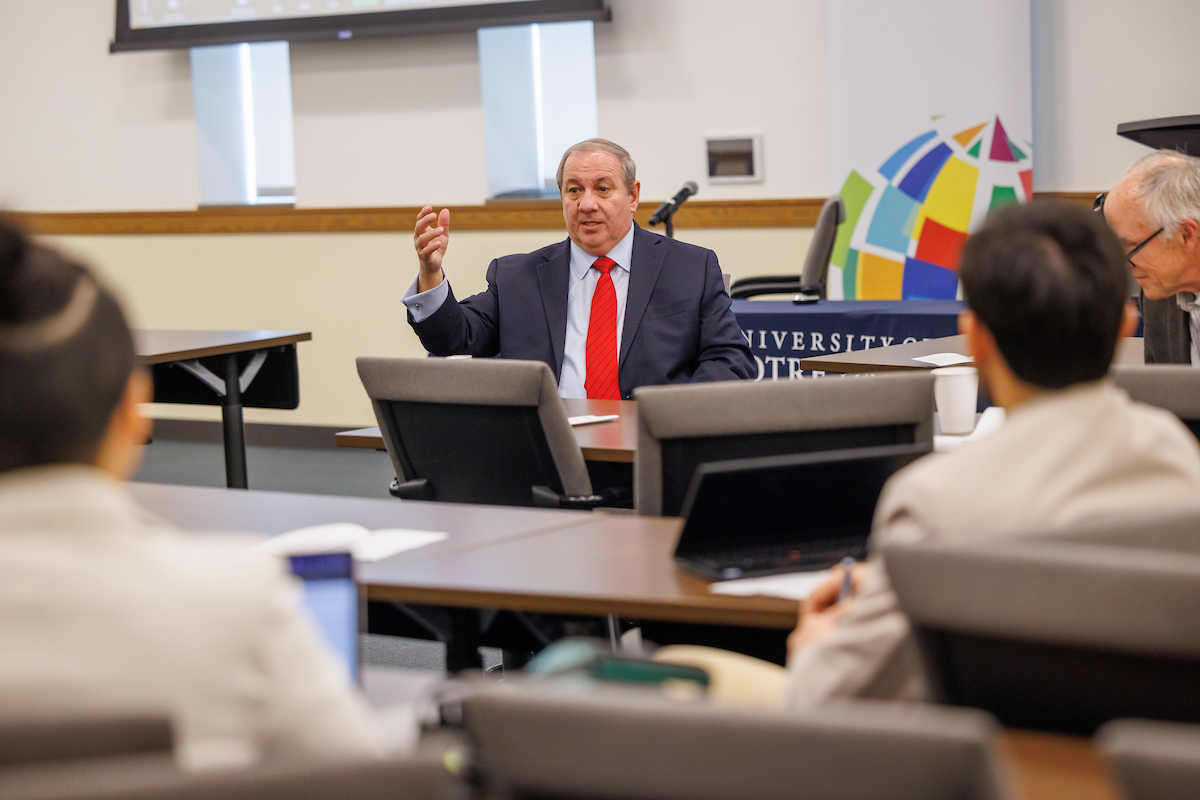
George A. Lopez, the Rev. Theodore M. Hesburgh, C.S.C., Professor Emeritus of Peace Studies at the Keough School’s Kroc Institute for International Peace Studies, described how networking has helped him build influence throughout his career.
“What can you do in terms of assessing the needs of congresspeople or policy people?” he asked. “Often it’s a short email that says, ‘I think you may find of interest this recent report I did for this agency.’ Or ‘I’d like to alert you to this article that’s just been published in this journal. I continue to monitor the work of your committee or your agency and I’m happy to stay in touch.’ How do you assess the needs of the policy cluster you want to be with? You meet with them. If it works well, and it takes time for it to work well, you’ll notice the level of access begins to change.”
Putting the audience first
Much of the discussion emphasized the need for translating research to make it accessible to target audiences.
Gwendolyn Stansbury, program director for knowledge management at the Keough School, walked participants through this process as part of a presentation on crafting effective research strategies.
“If I were you, I would think about translational outputs,” she said. “This is particularly true if you’re trying to reach policy audiences. For instance, if your work is very technical, but you have really great policy-relevant recommendations, you may want to consider putting it into a policy brief.”
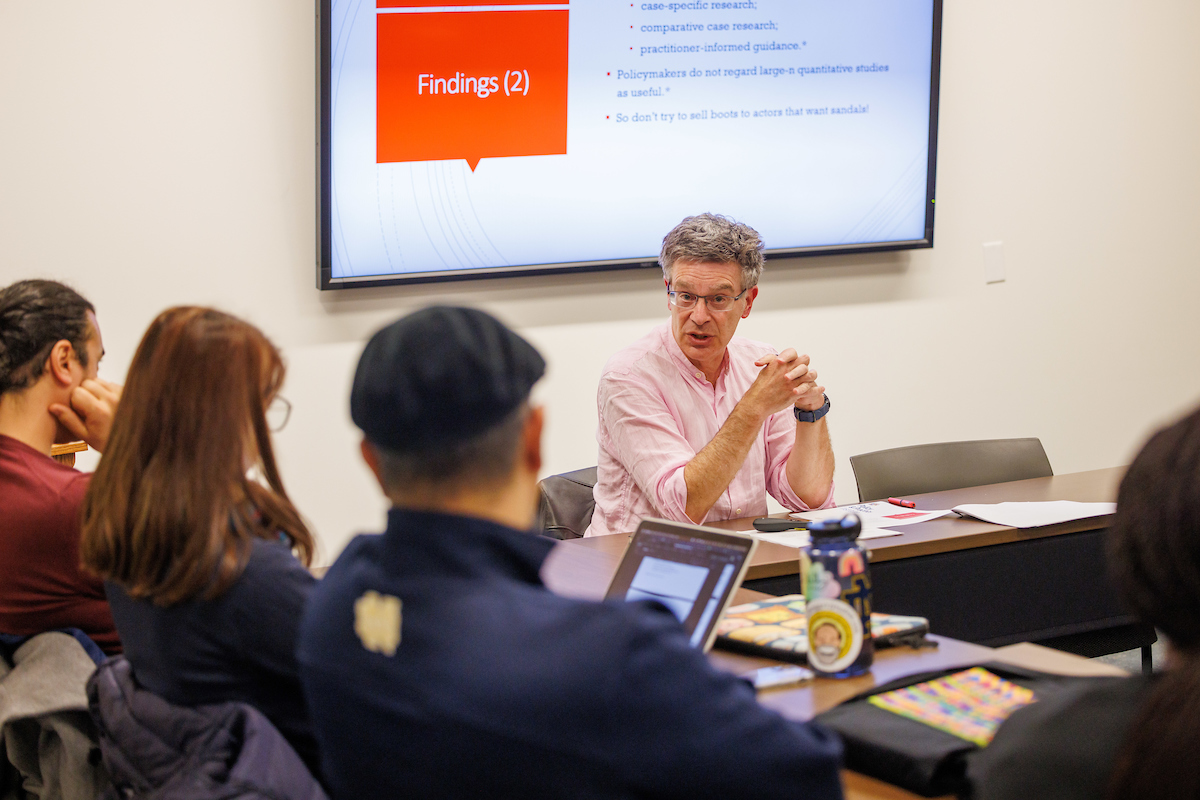
Laurie Nathan, professor of the practice of mediation at the Keough School and mediation program director for the school’s Kroc Institute for International Peace Studies, shared his approach to identifying research priorities, which involves thinking of policymakers as customers. In his case, understanding the topics they want to focus on has helped him craft research that is timely and relevant. “Pay attention to what your customer wants,” he said. “Don’t try to sell sandals to people who want boots.”
Earning a reputation as a trusted source of research
Speakers emphasized how carving out a focused area of expertise commands respect and lends credibility and authority to one’s work.
Ellen Nissenbaum, senior vice president for government affairs for the Center on Budget and Policy, described how her organization’s intense focus on producing high-quality research has helped it shape public debates and led policymakers to pursue equitable policies that address issues such as poverty, health, and access to opportunity.
“Our entire model, our impact and our influence, is all based on our commitment to doing independent, well-written, documented, non-ideological, non-partisan, extremely high-caliber research and analysis within our areas of expertise,” she said. “We don’t speak to things we don’t know about. We are extremely strict about sticking to our lanes rather than trying to spread ourselves too thin.”
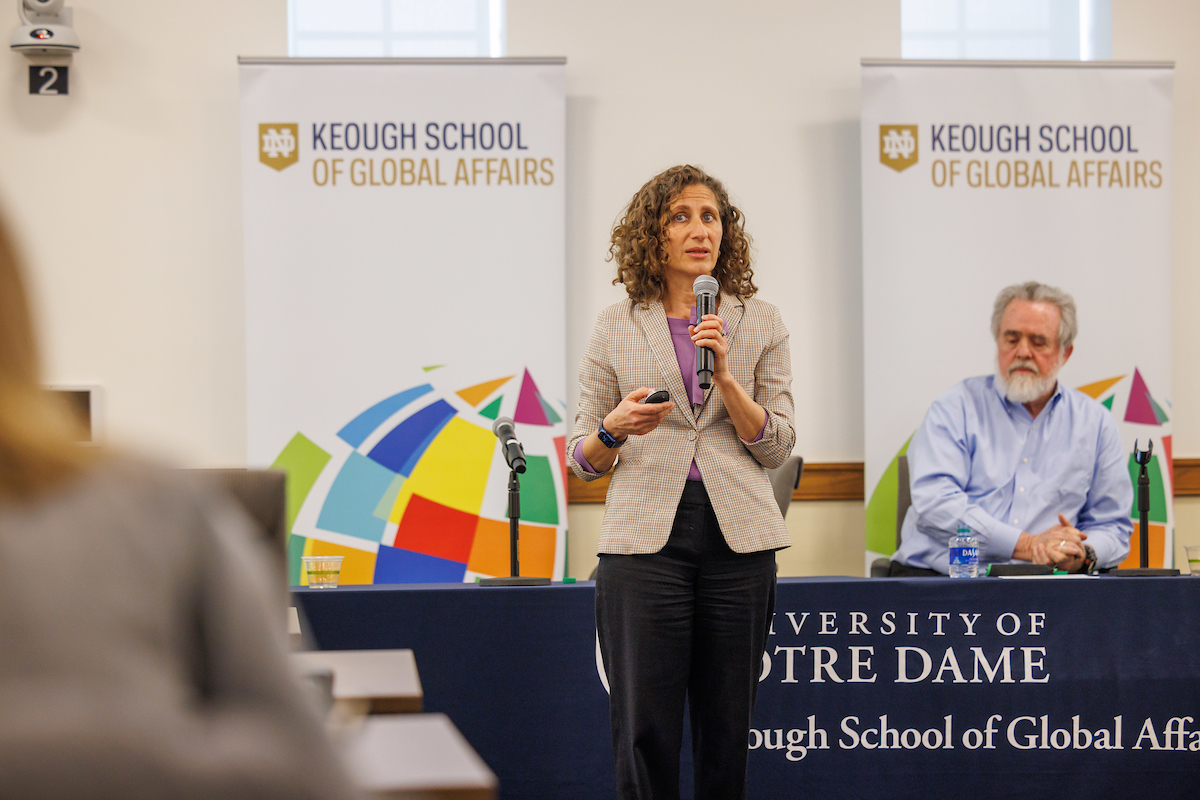
Kimberly Pfeifer, head of research at Oxfam America, explained how her organization seeks out excellent researchers to partner with in its advocacy efforts.
“We’ve always worked with academics on developing and delivering on research agendas,” she said. “We felt that in partnering with researchers who are set up to do this kind of work, this is how we could bring in research and expertise, and how we could also build credibility and policy agendas together, so that we can, along with our partners, have a seat at the table in the policy space.”
Making an impact
Scott Appleby, Marilyn Keough Dean of the Keough School, said the institute was a key step in promoting the school’s vision for policy and practice.
“Forging effective policies requires collaboration across disciplines and sectors, and requires all of us to become expert in the skills and modes of reasoning that inform the world of policy and practice,” he said. “This means becoming expert in the art of applying research scholarship and learning in service to the common good.”
